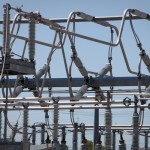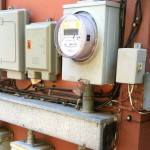PUC Approves Higher Prices for Wholesale Electricity
This morning Public Utility Commission Chair Donna Nelson and Commissioner Rolando Pablos voted to approve an increase in the price cap for wholesale electricity in Texas. Commissioner Kenneth Anderson, Jr. abstained.
Before today’s vote, the wholesale price of electricity had been capped at $3,000 per megawatt hour. Under the new rule that will rise to $4,500. It’s meant to make the business of selling power in Texas more profitable. Supporters say that’s necessary to encourage investment in new power plants.
“We don’t require the building of generation in Texas. We set up the market forces so that generators want to come to Texas,” PUC Chair Donna Nelson told StateImpact Texas after the vote.
Commissioner Anderson, the one abstaining vote, had long been skeptical of raising the cap this year. Before the vote he argued again that the price hike would not impact power plant construction by the end of the summer.
“I’m just not convinced, as I wasn’t back in April, that it was necessary to do it for this summer. My preference was, and in the end remains that market participants, particularly load serving entities, need more time to adjust to this change.”
In April, Anderson had said power companies would be “carting money away not in wheel barrows, but in Mack trucks,” if the vote was approved this summer.
The move is part of an effort to get companies to build more power plants at a time when officials worry the Texas may not have enough electricity to avoid rolling blackouts in long term. But some groups worry that the price hike could mean higher electric rates for consumers.
“No one knows how much this will cost Texas,” said Texas Coalition for Affordable Power Board President Jay Doegey, “or even whether it will result in more generation coming online. But one outcome seems likely: Texas consumers will end up paying more.”
Right now, there is no comprehensive analysis of consumer impact, and the estimates that exist have varied widely– from a two percent hike per household to an increase amounting to $200 for every person in Texas.
This post has been updated with added reaction. StateImpact Texas intern Robb Jacobson contributed reporting to this article.



